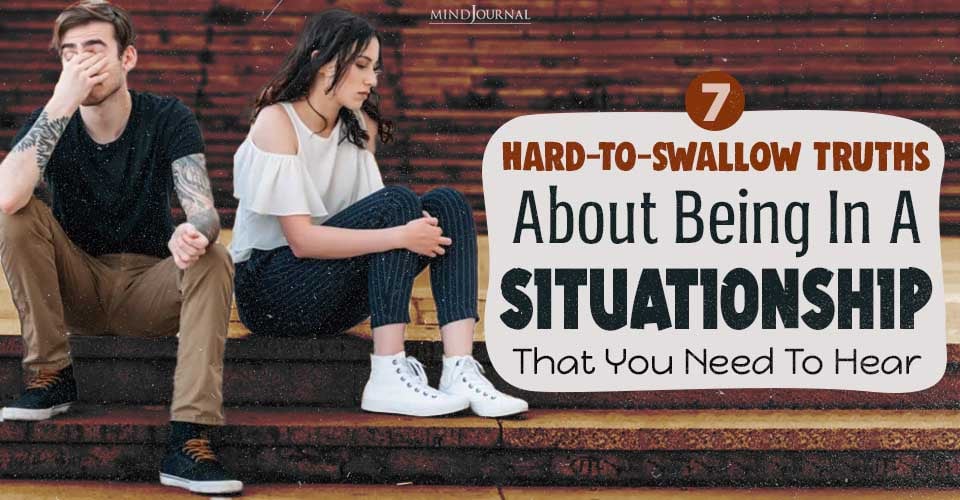Ever felt an instant wave of disgust toward someone you might start to like? That’s “the ick.” But why does it happen? And can you stop it? Let’s learn more about it!
Why otherwise great partners suddenly turn us off, often for weird reasons.
Key points
- “The ick” is a sudden feeling of disgust toward a partner, often for minor things.
- A TikTok study showed physical appearance is a less frequent ick trigger than behavior or personality.
- 64% of people have felt the ick; 26% end relationships immediately after.
- Disgust sensitivity, narcissism, and perfectionism increase ick likelihood
Read More Here: Love Shouldn’t Feel Like A Full-Time Job— 4 Signs You’re Carrying The ‘Invisible Load’ In Relationships
Have you ever been completely smitten with someone, only to suddenly find yourself inexplicably repulsed by them? Maybe they chew too loudly, wear socks with sandals, or simply act in some way that feels “off.” If so, you’ve likely experienced “the ick.”
Often triggered by seemingly minor habits or characteristics, the “ick” is a sudden and intense shift in attraction due to a feeling of repulsion toward a potential partner, suggesting a perceived lack of compatibility or low mate value.
The “ick” feeling is a disgust-based feeling in the context of a romantic partner, which research shows decreases attractiveness (Phelan & Edlund, 2016).
What Causes “The Ick?” A TikTok Study
In the first study, researchers analyzed popular videos with the hashtag #theick to identify the most common triggers for a sudden turn-off (Collisson et al., 2025). Though many assume that physical appearance is the main trigger of “the ick,” the analysis of the TikTok community suggests otherwise.
As you can see from the study’s table, both men and women had being publicly embarrassing and using annoying speech in their top three icks. Women were most concerned about a guy being too feminine, while men’s biggest concern was a woman who was too trendy. Women also considered misogynistic behavior and fashion faux pas as frequent icks.
For men, physical appearance made the top five, though it did not for women. Overall, physical appearance only accounted for 6% of the ick triggers discussed on TikTok. This suggests that personality and behavior often play a bigger role than looks when it comes to the ick.

What Do People Do Once They Get the Ick?
The main study explored the link between personality traits and the likelihood of experiencing the ick. Researchers surveyed single adults (ages 24-72), measuring their levels of disgust sensitivity, narcissism, and perfectionism. They also asked about their familiarity with and experiences of the ick.
Overall 64% of the sample had experienced the ick. On average, participants had experienced the ick approximately six times (with one person reporting 300 instances of the ick). Experiencing the ick, isn’t a complete dealbreaker, but it’s close. Results indicated that upon having the ick, 26% terminated the relationship immediately, while 42% ended the relationship later.
That leaves 32% of the people who continued the relationship despite the ick. Most participants did not share the ick experience with the partner who caused it (only 28% shared). However, nearly everyone shared it with someone else (92%), most often with friends (80%) or family members (50%).
Who’s More Likely to Get “The Ick”?
Women were more familiar with “the ick” (63% vs. 39%) and were more likely to have experienced the ick than men (75% vs. 57%). This aligns with the evolutionary psychology idea that women, due to greater parental investment, may be more attuned to potential mate incompatibilities and relationship risks. However, among those who had experienced the ick, men and women reported experiencing it the same amount.
People who are easily disgusted by things like germs, bodily fluids, etc. (i.e., have higher disgust sensitivity) seem more sensitive to specific ick triggers.
However, this doesn’t necessarily mean they experience the ick more often than others, just that they might be strongly affected by certain triggers. Think of it like having a sensitive smoke alarm – it might go off more easily for specific types of smoke, but not necessarily for all smoke.
The researchers also found that people with an inflated sense of self-importance and a need for admiration (i.e., grandiose narcissism) were likelier to experience the ick. However, how often they experience the ick isn’t necessarily higher. This suggests they’re very selective.
They might only get the ick when they perceive very specific flaws that threaten their high opinion of themselves or their partner’s perceived status, but they don’t get the ick over every little thing.
Also, those with high perfectionism standards were more likely to experience the ick and experience it more frequently. If you have rigid expectations for a partner, you’re more prone to being turned off by minor imperfections.
Finally, there were some gender differences based on specific ick triggers. Women’s “ick” triggers, particularly for those with perfectionistic or narcissistic tendencies, often involved physical appearance and public embarrassment. Men, especially those with high disgust sensitivity, were more likely to be turned off by annoying speech and overly trendy behavior.
Is the “Ick” a Red Flag or Just Pickiness?
The ick may serve a useful purpose if it helps us identify genuine incompatibilities in potential partners. However, many of the ick triggers, aren’t qualities we might associate with long-term fulfilling relationships.
For example, you could have a perfectly healthy relationship with someone who wears jorts or likes astrology. While it’s important to listen to your gut feelings, it’s also worth considering whether that sudden wave of revulsion signals a real incompatibility or simply reflects superficial sensitivities.
“You can learn more about Dr. Lewandowski’s book, Stronger Than You Think: The 10 Blind Spots That Undermine Your Relationship…and How to See Past Them at his website Psychology Of Relationships.
Read More Here: 12 Common Behaviors That Could Be Keeping You Single
References
Collisson, B., Saunders, E., & Yin, C. (2025). The ick: Disgust sensitivity, narcissism, and perfectionism in mate choice thresholds. Personality and Individual Differences, 238. 113086. https://doi.org/10.1016/j.paid.2025.113086
Phelan, N., & Edlund, J.E. (2016). How disgust affects romantic attraction: The influence of moods on judgments of attractiveness. Evolutionary Psychological Science, 2, 16–23. https://doi.org/10.1007/s40806-015-0031-7
Written by: Gary W. Lewandowski Jr. Ph.D.
Originally appeared on: Psychology Today










Leave a Reply